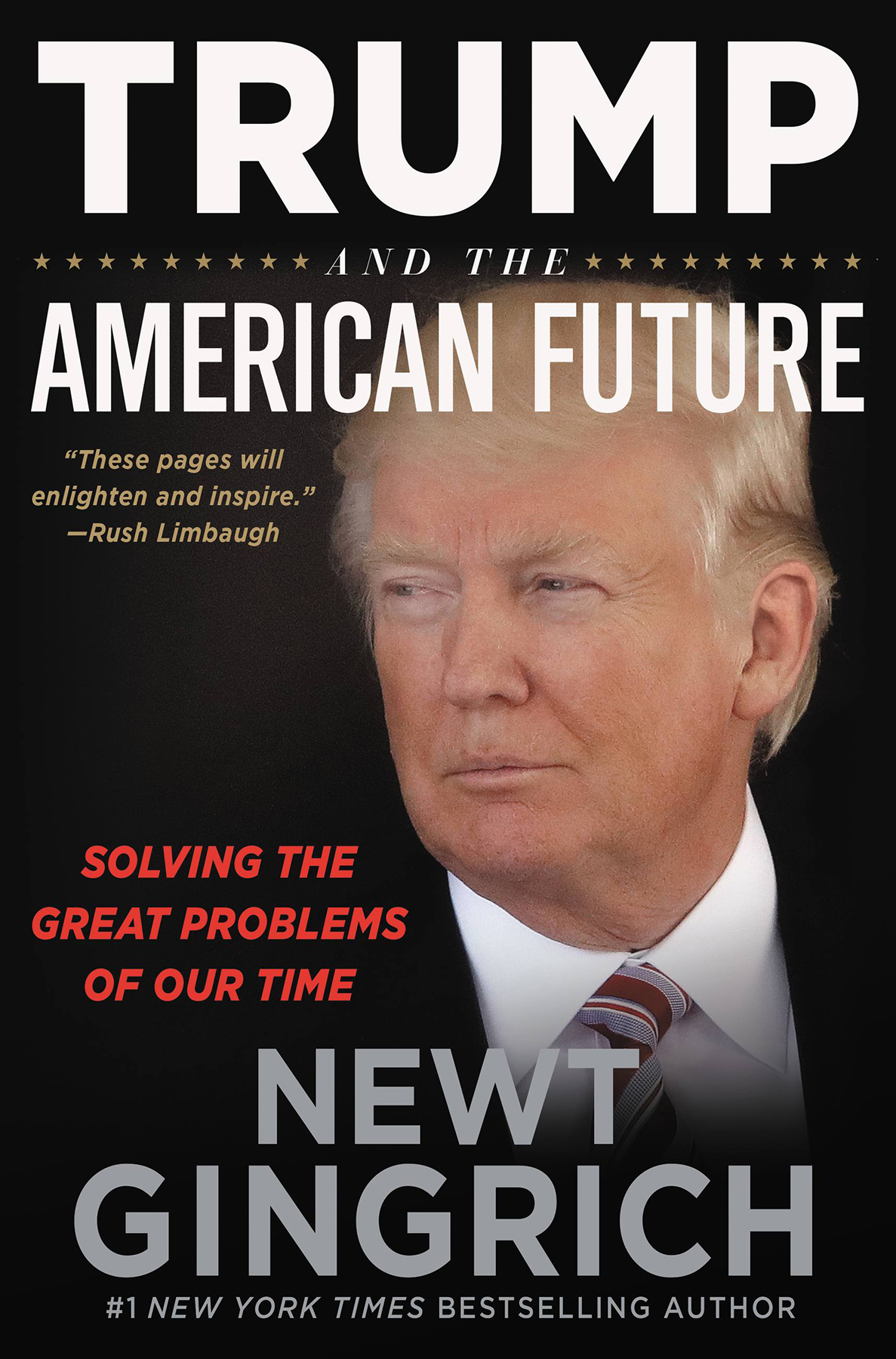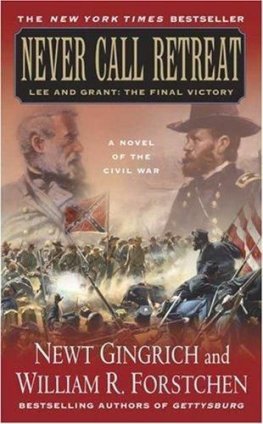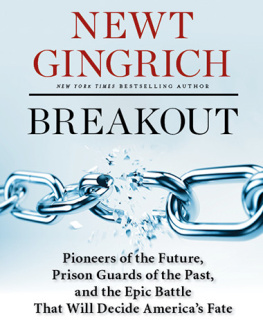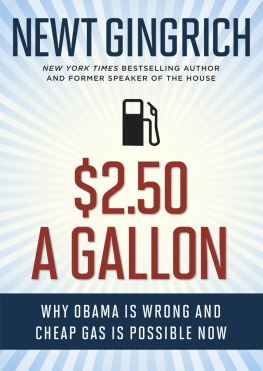Newt Gingrich - Trump and the American Future: Solving the Great Problems of Our Time
Here you can read online Newt Gingrich - Trump and the American Future: Solving the Great Problems of Our Time full text of the book (entire story) in english for free. Download pdf and epub, get meaning, cover and reviews about this ebook. year: 2020, publisher: Center Street, genre: Politics. Description of the work, (preface) as well as reviews are available. Best literature library LitArk.com created for fans of good reading and offers a wide selection of genres:
Romance novel
Science fiction
Adventure
Detective
Science
History
Home and family
Prose
Art
Politics
Computer
Non-fiction
Religion
Business
Children
Humor
Choose a favorite category and find really read worthwhile books. Enjoy immersion in the world of imagination, feel the emotions of the characters or learn something new for yourself, make an fascinating discovery.

- Book:Trump and the American Future: Solving the Great Problems of Our Time
- Author:
- Publisher:Center Street
- Genre:
- Year:2020
- Rating:3 / 5
- Favourites:Add to favourites
- Your mark:
- 60
- 1
- 2
- 3
- 4
- 5
Trump and the American Future: Solving the Great Problems of Our Time: summary, description and annotation
We offer to read an annotation, description, summary or preface (depends on what the author of the book "Trump and the American Future: Solving the Great Problems of Our Time" wrote himself). If you haven't found the necessary information about the book — write in the comments, we will try to find it.
Trump and the American Future: Solving the Great Problems of Our Time — read online for free the complete book (whole text) full work
Below is the text of the book, divided by pages. System saving the place of the last page read, allows you to conveniently read the book "Trump and the American Future: Solving the Great Problems of Our Time" online for free, without having to search again every time where you left off. Put a bookmark, and you can go to the page where you finished reading at any time.
Font size:
Interval:
Bookmark:

Copyright 2020 by Newt Gingrich
Cover design by Jody Waldrup
Cover photograph Win McNamee/Getty Images
Cover copyright 2020 by Hachette Book Group, Inc.
Hachette Book Group supports the right to free expression and the value of copyright. The purpose of copyright is to encourage writers and artists to produce the creative works that enrich our culture.
The scanning, uploading, and distribution of this book without permission is a theft of the authors intellectual property. If you would like permission to use material from the book (other than for review purposes), please contact permissions@hbgusa.com. Thank you for your support of the authors rights.
Center Street
Hachette Book Group
1290 Avenue of the Americas, New York, NY 10104
centerstreet.com
twitter.com/centerstreet
First edition: June 2020
Center Street is a division of Hachette Book Group, Inc. The Center Street name and logo are trademarks of Hachette Book Group, Inc.
The publisher is not responsible for websites (or their content) that are not owned by the publisher.
Library of Congress Control Number: 2020936760
ISBNs: 978-1-5460-8504-1 (hardcover), 978-1-5460-8505-8 (ebook), 978-1-5460-5916-5 (large print)
E3-20200519-JV-NF-ORI
This book is dedicated to my wife, Ambassador Callista Gingrich; Ambassador Lewis Eisenberg; Ambassador Kip Tom; and the entire Tri-Mission Italy community who served America in Rome through the COVID-19 pandemic. They are courageous patriots.

W hesn I began writing this book, the world seemed stable and definable. There was a clear split: The radical Democratic Left was on one side, and President Donald Trump and the Republicans were on the other. Trump was winning on seating judges, deregulation, and economic growth. The hatred and unending attacks of the Left, and especially of their media allies, were mostly bouncing off a successful Trump administration. The two sides were tied to a draw in national polling, but the radical Democratic Left could not hurt President Trump with his base.
In the four and a half years since he and Melania came down the big escalator at Trump Tower to announce for the presidency, Donald J. Trump had remade the Republican Party into a Trump Party. No Republican president, not even Ronald Reagan, had acquired the depth of loyalty and the capacity to anoint primary candidates that President Trump has exhibited.
The great divides between the traditional American system (the rule of law, free enterprise, work ethic, and individual achievement) on the Trump side, and the socialist-collectivist radical agenda on the other seemed predictable.
That was the world in which I began writing this book.
Then everything on the surface changed. The underlying struggle over Americas future is still thereand it will resurface over time. The need for reforms to make America productive and safe is still there. If anything, they have been highlighted by problems in coping with the public health crisis and the shortages in domestic production of key items that had moved to China.
Beginning in January 2020, it became obvious that the novel coronavirus was gaining strength in China. By late February that pandemic was moving well beyond China.
The worldwide coronavirus pandemic, the depth of change being driven by the disease, and the increasingly stringent public health measures represent the largest change in our collective experience since World War II.
By the time this pandemic (and the government actions in response to it) have come to a halt, the individual and collective understanding of government, individualism, the economy, which institutions work, and so forth, will have changed significantly.
The Civil War was such a crucible that it forged two different Americas in the North and South. The North was more nationalist, patriotic, triumphal, optimistic, profitable, and confident than it had been before the war. The South was defeated, embittered, and impoverished. In response, it developed a sense of identity that rejected the North and maintained a segregated society with a Democratic political monopoly that lasted almost ninety years. Trying to understand American politics from 1865 to 1968 without accounting for the effect of the Civil War would be hopeless.
People are deeply frightened by the coronavirus. Many Americans are closer to panic than at any time in their lifetimes. The threat from the virus is both general and personal. It can wreck the country, and it can kill me and my family. The scale of the threat worldwide is confusing and unnerving. The breadth of the Chinese and Russian intervention in Europe and elsewhere is an enormous threat and challenge.
In this environment, every level of governmentfederal, state, and localis going to acquire vast power comparable to that of an all-out war. If sheriffs want to close gun stores and keep open marijuana stores, they will. If governors want to outlaw church services with more than ten people attending, they will. If Twitter wants to redefine free speech to be only that which is acceptable to the public health experts, it can.
There was also a brief blame-minimization period, but as the crisis continued, a lot of fingers started pointing: The failure of the Centers for Disease Control and Prevention (CDC) with testing cost us three weeks of effort and made it impossible to go to a Korea-Taiwan-Singapore style of massive testing and isolating only the people who have the virus. In the absence of thorough testing, it is also impossible to discern the real mortality rate. It would probably be much lower than people think, but the full number of infected people cannot currently be tabulated. With widespread testing, those who have shown no symptoms or have had such minor symptoms they never paid attention to it would surface. The increased number of cases would lower the death rate dramatically. That would lower the sense of fear.
There will also be a hard look at how badly the Chinese dictatorship handled the virusand how much blame they must bear for it spreading around the world. A lot of people died because the Chinese dictatorship tried to hide the virus and pretend it was not a problem.
As we live through several months of turmoil, our thinking about ourselves, and our families, communities, government, and country will evolve and shift as different events occur and as we talk with each other about what is happening and what we are experiencing.
With all this happening, we have to develop an in-depth approach to a dialogue with the American people to get some sense of how different people are reacting.
Americans will have gone through four extraordinary changes in just a few months:
1. They will have been frightened individually and collectively by a pandemic that stressed both the public health system and the medical delivery system.
2. They will have lived through enormous government intervention in their lives and their jobs, with an outpouring of money on a scale we have never seen in such a short time, and with a premium on understanding how to get money out of bureaucracies.
3. They will have experienced the largest growth in government power in American history. With the exception of rare, localized impositions of martial law, there has never been this kind of expression of government powercapable of telling you to stay home, fining you for being on the streets, and exercising decisive power to define if you can have any kind of gathering of any number. These impositions of government power will have been experienced by virtually everyone.
Font size:
Interval:
Bookmark:
Similar books «Trump and the American Future: Solving the Great Problems of Our Time»
Look at similar books to Trump and the American Future: Solving the Great Problems of Our Time. We have selected literature similar in name and meaning in the hope of providing readers with more options to find new, interesting, not yet read works.
Discussion, reviews of the book Trump and the American Future: Solving the Great Problems of Our Time and just readers' own opinions. Leave your comments, write what you think about the work, its meaning or the main characters. Specify what exactly you liked and what you didn't like, and why you think so.




